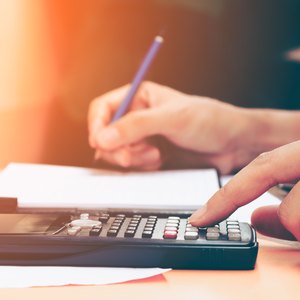
Start-up expenses and start-up assets differ based on a variety of factors, including their composition, longevity, use and tax value. Understanding the difference between the two will help you create a more accurate budget for your business launch and subsequent operations, as well as enhance your ability to obtain a loan or venture capital.
Tips
Start-up expenses are the costs of getting your business up and running. These include buying or leasing space, marketing costs, equipment, licenses, salaries, and the cost of servicing loans. Start-up assets are items of value, such as cash on hand, equipment, land, buildings, inventory, etc.
Pre-Opening Expenses
Before your business opens its doors, you will have expenses related to getting it off the ground. You may have expenses for creating a company under which the business will operate. For example, if your long-term plan includes opening more than one store, you might wish to start corporation under which both stores will operate. Start-up expenses directly related to a specific business launch, such as a restaurant, would include purchasing or leasing a building and equipment, food costs, marketing costs and licenses.
Operating Expenses
The costs to operate a business until it begins to show a profit are often include in start-up expenses. This would include such expenses as salaries and wages, marketing expenses, debt service on loans, rent and leases. You will need to budget for operating expenses as you “start up” the business and secure enough operating capital to run the business as you grow revenues. Assuming that you will begin operating on a break-even or with a positive cash flow as soon as you're open is risky and can doom your business.
Start-up Assets
Start-up assets include cash you have on hand, equipment, land, buildings, inventory, trademarks, recipes, goodwill and any other items you own that have a value. If someone approached you to buy your building, those items you could sell that person are considered your assets. You can even include your business plan as an asset and assign it a value. Start-up assets differ from other assets in that you could not open and run the business without start-up assets, while later asset purchases help you expand your business or replace previously purchased assets.
Start-up Assets and Filing Taxes
You will not be able to record all of your assets as an expense on your taxes. In some cases, you will have to wait until you sell assets, such as inventory, before you can consider them an expense. Other assets, such as start-up equipment, have a limited initial tax benefit. Use a tax professional to help you determine what you can classify as an expense and what needs to be considered an asset to minimize your tax burden and avoid tax problems.
In your business plan, identify those assets you can depreciate, such as office or building equipment. Depreciating the value of items you have already purchased gives you a tax benefit. The annual depreciation of an asset is recorded similarly to an expense. You will have to replace computers, autos, machines and other physical items as they get older, degrade and lose their value, which is why you are able to depreciate them on your taxes. Intellectual property, such as a recipe, business name or logo, doesn’t decrease in real value, so you may not depreciate it.
Starting a business is a good time to develop a relationship with a financial professional, if you haven't done so already. Find someone you can trust with your accounting and tax questions, so you can focus on running your business.
References
- Calculate your startup costs
- Bplans: Estimating Realistic Startup Costs
- U.S. Small Business Administration. "Fund Your Business." Accessed Mar. 12, 2020.
- U.S. Small Business Administration. "Loans." Accessed Mar. 12, 2020.
- U.S. Small Business Administration. "Apply For Licenses and Permits." Accessed Mar. 12, 2020.
- U.S. Small Business Administration. "Hire and Manage Employees." Accessed Mar. 12, 2020.
- U.S. Small Business Administration. "Choose a Business Structure." Accessed Mar 12, 2020.
Writer Bio
Sam Ashe-Edmunds has been writing and lecturing for decades. He has worked in the corporate and nonprofit arenas as a C-Suite executive, serving on several nonprofit boards. He is an internationally traveled sport science writer and lecturer. He has been published in print publications such as Entrepreneur, Tennis, SI for Kids, Chicago Tribune, Sacramento Bee, and on websites such Smart-Healthy-Living.net, SmartyCents and Youthletic. Edmunds has a bachelor's degree in journalism.

